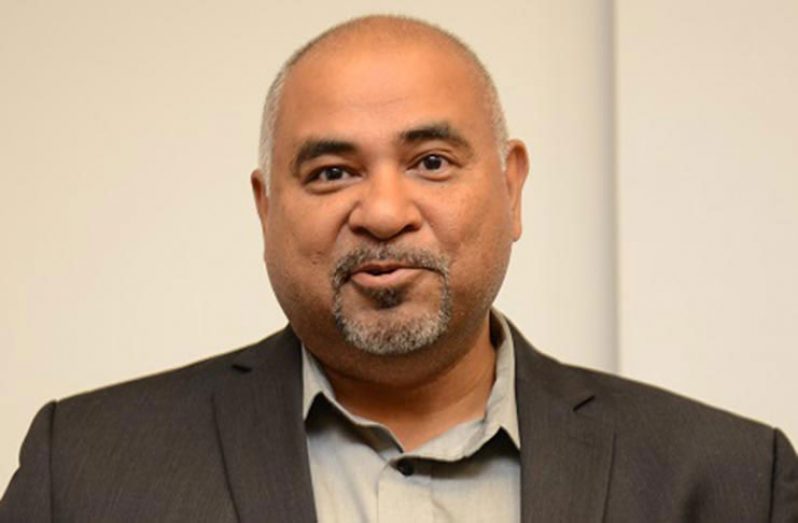– IAST Director
GUYANA can lead the narrative of modern development if it embraces its multiplicity of cultures and manages its resources well, according to Director of the Institute of Applied Science and Technology (IAST), Dr. Suresh Narine.
Addressing a wide audience of government ministers, local and foreign experts and Guyanese at the International Small Business Summit, Narine advanced that developing states in particular have embraced a “monotonic” approach to development, which was envisaged years ago.
He contended that across most of Latin America and South America, there is a general trend towards urbanization; a removal of the importance of unique and individual cultures and a measurement of success by a very opaque concept, called GDP (Gross Domestic Product).
Development in this context, according to him, encompassed harnessing resources to promote economic growth.
Guyana finds itself in a heightened state of underdevelopment, therefore, if it is only viewed in the context of the accepted monotonic course of development, Narine said.
Due to the world’s monotonic pursuit of development, he said, “Our ability to produce food is dwindling as our amounts of arable acreage exponentially dwindle; and the amount of freshwater resources that we have in the world is being increasingly [used up].”
Dr. Narine, who is also a director of Canadian oil and gas exploration company CGX Inc., posited however that Guyana is in a unique position now. He advanced these sentiments amidst discussions on the government creating an enabling environment for transformation into a ‘green’ state, particularly in the wake of massive oil finds.
“Where we [Guyanese] find ourselves now is most of our environment is in a pristine state and suddenly… Guyana is at the cusp on being able of capitalise on some growth. It is on the cusp of being able to define how that growth will be and this tiny little country… now has the opportunity to define what development can be,” he explained.
Development in the country has been plagued by a plethora of issues, with racial insecurity being a chief issue, the director noted. To this end, he remarked: “But the very thing that has plagued this country allows a multiplicity of solutions.”
For him, Guyana is a rich nation comprising six different and distinct peoples, from six distant places, which can only contribute to the country’s development.
“How remarkable that the patrimony that we have is not only in the capital heading our way; [and] it is not only the pristine environment that we have managed to maintain, but it’s this collective approach to defining what we can be which draws from wellsprings all across this globe,” he related.
And with this in mind, the director stressed: “If we don’t, at this moment in time, seize on what that is valued, then the Green State Development Strategy will mean nothing.”
Additionally, with the advent of oil, he noted that the pressures that will emanate from persons coming to these shores to direct the country on the way forward will be unrelenting.
As such, he related, “The opportunity that we have at this cusp in time, is quite remarkable; and I think for a small country that is going to have massive problems absorbing the capital that’s coming our way, to be audacious enough to say we will nucleate “green” growth rather than pursue the profligate trajectories that other oil-producing states have [deserves] an applause.”
Director of the United Nations Environment Programme, Leo Heileman, also lauded Guyana’s ambition to use oil revenues to facilitate it’s transformation into a “green” state.
“Guyana has a unique opportunity. If managed correctly, oil revenues can relieve constraints to economic growth, boost social development and safeguard environment assets of the future. But this is not guaranteed: sound fiscal and monetary policies must guide this effort to ensure benefits reach the entire population and are sustained for the future generations,” Heileman noted. “This is the direction the world needs to take in order to have a planet that is safe for all of us in the future.”
Both Heileman and Dr Narine acknowledged that the pursuit of green development will not be an easy task, but one that will take very careful stewardship.
As such, Dr. Narine said: “Guyanese, you have six places, six peoples, a remarkable fabric of a society — use it. Appeal to ingenuity here and make ‘Made-in-Guyana’ solutions.”



.jpg)











